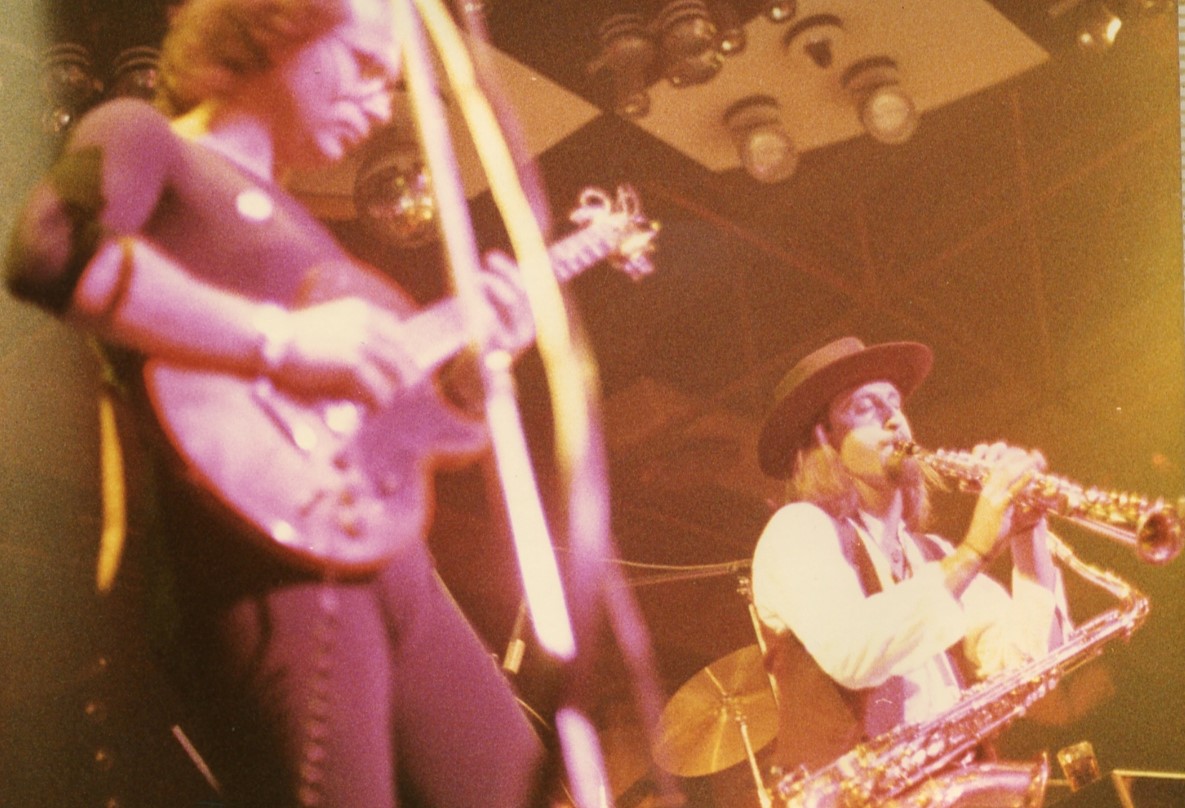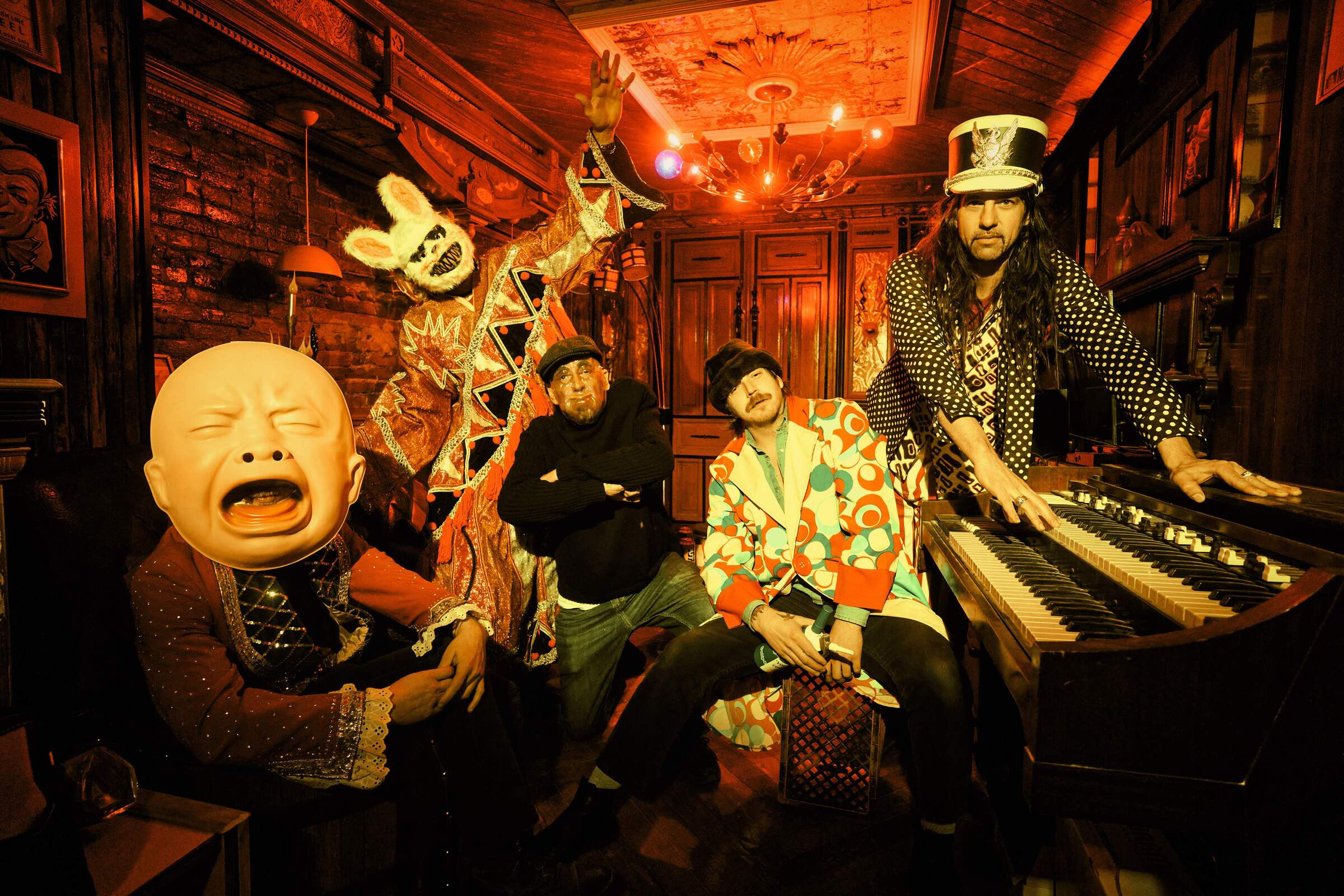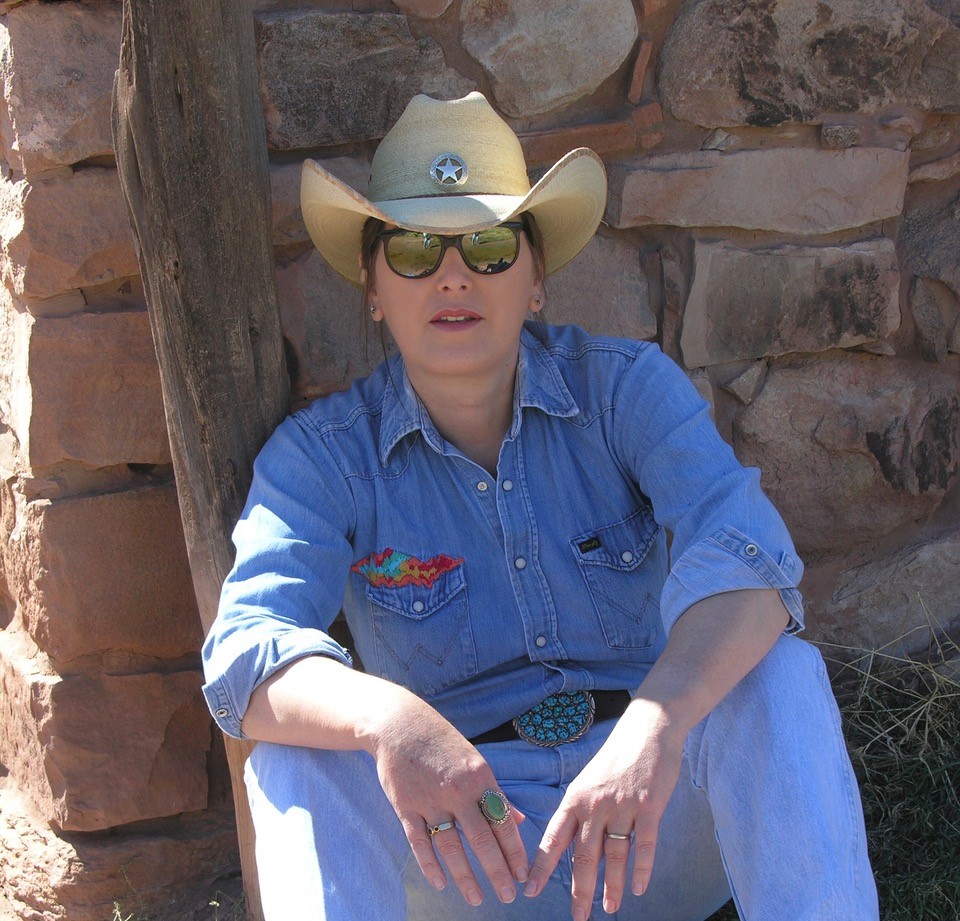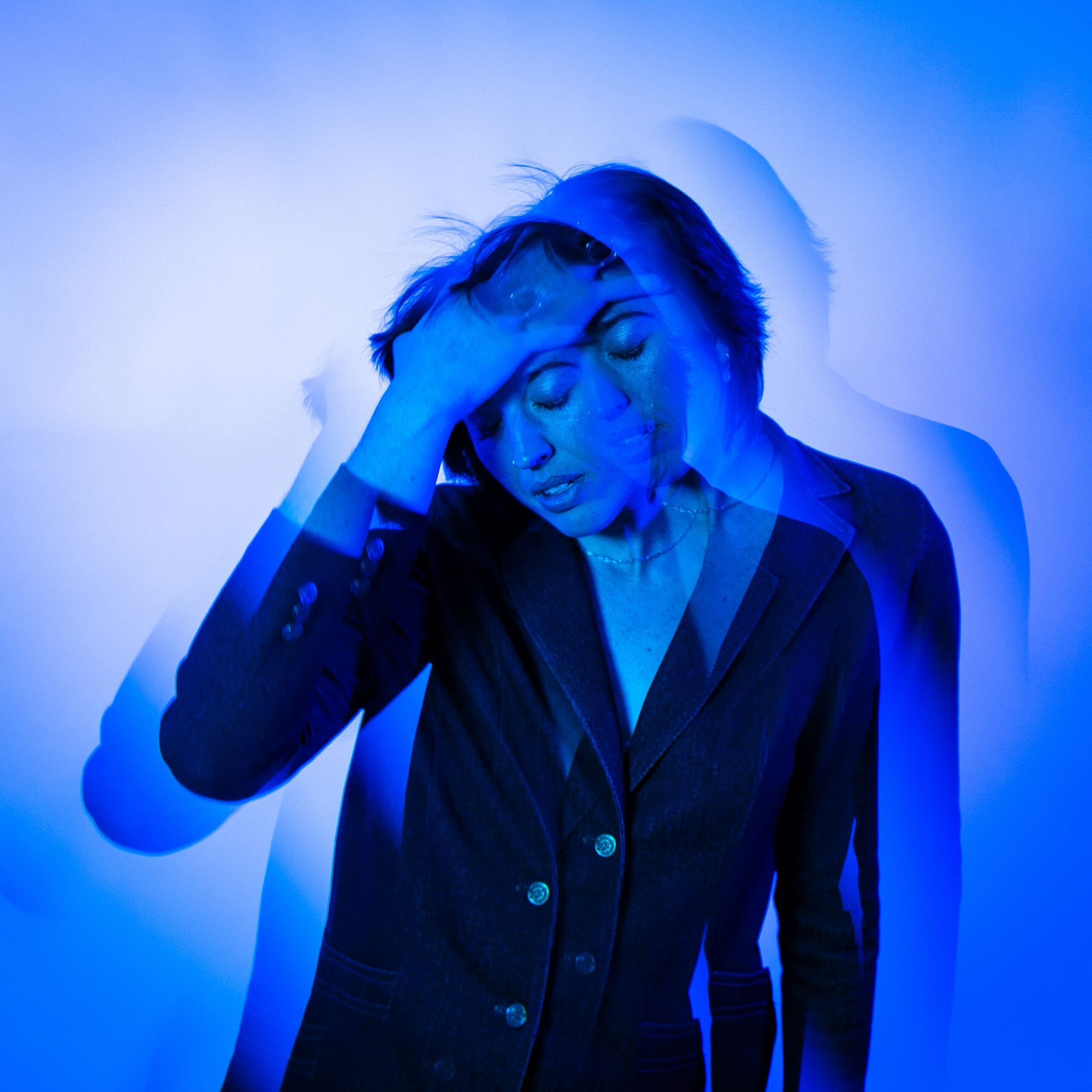Costa Blanca | Interview | “70’s Mediterranean jazz fusion at its best”
Costa Blanca’s sole album takes the listener through a typical summer in the Mediterranean, from its blissful afternoons by the sea to galloping thunderstorms, and is reminiscent of some kind of Weather Report with a Mediterranean flair.
Altercat Records recently did the first ever reissue of a highly collectable Spanish jazz-rock/fusion album from 1977. Includes 8-page booklet with bilingual liner notes and photos from the musicians’ archives, plus a reproduction of the original lyrics sheet.
Hailing from sun-bathed Alicante in the Spanish Levantine coast, Costa Blanca shared the stage with some of the country’s best-known rock acts of the time, including Triana, Guadalquivir, Bloque or Coz, often receiving praise from fellow musicians and music critics alike. Formed by four musicians of diverse musical backgrounds, the band members proved to be exceptionally skilled despite their limited experience, remarkably drummer Pedro Barceló who, aged just 17 at the time of recording, delivered an astonishing 9-minute solo and grew to become one of the most in-demand session musicians in Spain. Napi Carratalá’s guitar makes sure his inclination for psychedelic rock doesn’t go amiss and the imperturbable Chiki Navarret provides the funky bass lines that hold the band together, while the French saxophonist Alain Fabrizio blows the jazz influence, adding a bit of soulfulness into the blend.
Alain Fabrizio – saxophone
Alfonso Napi Carratalá – guitar
Chiki Navarret – bass
Pedro Barceló – drums
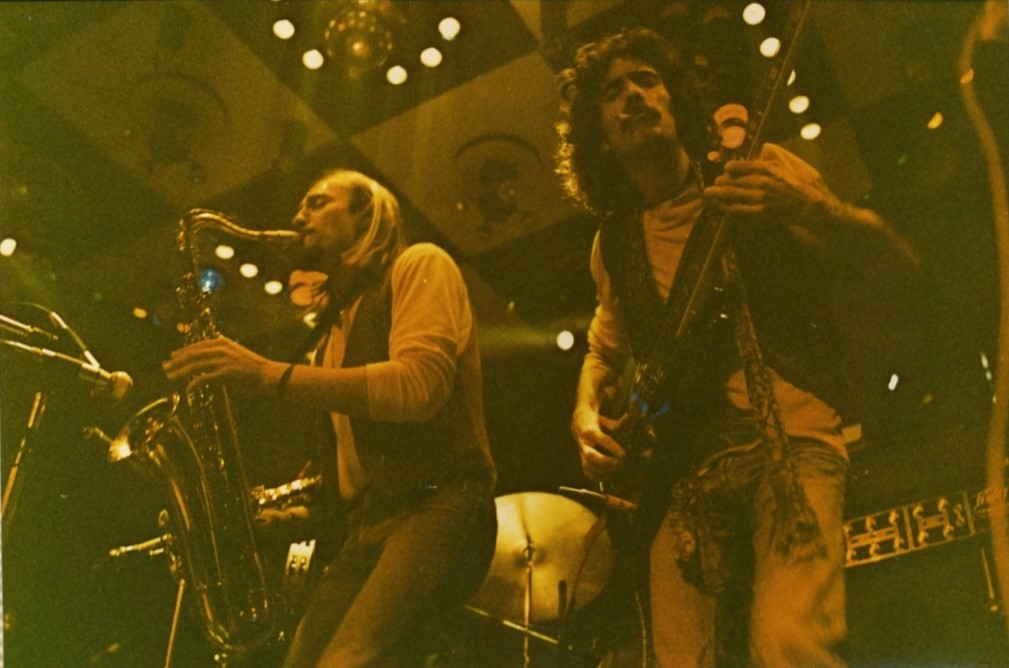
“We somehow became the representative group of the hippie movement in Alicante”
Where and when did you grow up? Was music a big part of your family life? Did the local music scene influence you or inspire you to play music?
Pedro Barceló: I was born in 1959 in a small village from Alicante, called Almoradí. I lived there until I was 15 years old. Later my family moved to Alicante city where I met new musicians that would later form Costa Blanca. My mother’s family were musicians, I guess that’s where my love for music came from. At the beginning, maybe I was 6 or 7 years old, I liked to make rhythms everywhere imitating the drummers that I watched on TV. The first time I saw a live band on the street I got a crush for the drums. Since this moment my dream was to play real drums and to be a drummer… The important thing about that early period was feeling that music was a wonderful game and that it allowed you to travel through space and time. At the time I was a child of 10 or 11 years old and I learned by playing and just trying. That mentality has been the one that I have tried to maintain all these years, from then until now.
Alfonso Napi Carratalá: I was born in Alicante – Spain 1952, a sunny place caressed by the Mediterranean sea. My older sister had a music store where the musicians of the province frequently visited because she was very advanced for Spain and imported avant-garde jazz and rock records at the time so I didn’t listen to much local music because it was very folkloric and not very exciting for me.
Alain Fabrizio: I was born in Casablanca, Morocco in 1956. My family moved to Marseille (France) when I was only 8 years old.
When did you begin playing music? What was your first instrument? Who were your major influences?
Pedro Barceló: I started to play drums when I was 11 years old, with a dance band from Almoradí called Ford Kafres… In those times I loved everything because music and drums was the best game in the world. Everything was amazing to me, but my first big influence, clearly, was the Beatles.
Alfonso Napi Carratalá: At about 14 or 15 years old, I was very lucky, I only knew how to play two chords on the guitar but my classmate from school was playing in a semi-professional group Los Gritos (The Shout) and he told me, “Come to the rehearsal room tomorrow, we’re going to audition you because the bassist is going to do military service.”. I tested well and started playing bass for two years. My influences over time were all the records I listened to with my sister in her store and Bob Dylan, The Beatles, Jimi Hendrix, Frank Zappa. King Crimson, Jeff Beck, Mahavishnu Orchestra, Miles Davis, Weather Report and many others. In the last decade I have liked to listen to things like Meshuggah or Napalm Death et cetera. Sometimes that extreme sound density is healing for me, haha! This mixture of concepts may seem disturbing, but what is not?
Alain Fabrizio: My father, a man who could not realize his dream of playing an instrument, focused my life towards music by enrolling me in the conservatory at the age of 12 years old with the modality of solfeggio and saxophone. I really liked to develop that sensitivity that I had in me. Seeing the progress I was making, I immediately bought an alto saxophone to study and I bought a Selmer Mark VI (the best of that time and now I suppose). In 1974 I graduated with honors: first prize at the conservatory of Marseille.
What bands were you a member of prior to the formation of Costa Blanca?
Pedro Barceló: I played with two dance bands before I moved to Alicante.
Alfonso Napi Carratalá: Los Gritos, El Fin, Peter Vince Group, Progression, Germinal and Mamá.
Alain Fabrizio: It was when I was 16 years old that I started playing with pachanga groups and then I changed to funk, pop jazz and even free jazz Soft Machine style, always with our own compositions. I can say now that in the end, what I was looking for was my own style. With some groups whose names I don’t remember, we played in concerts and alternative festivals. I really liked playing live music, improvisation, touring, the Peace and Love atmosphere that was in the air then [laughs]. The music I listened to then was from groups such as Soft Machine, Gato Barbieri, Miles Davis, for their stage show I liked Magma, a very avant-garde French group and Genesis, Pink Floyd, Frank Zappa, Jimi Hendrix Experience, Santana, King Crimson and many others.
“Everything flowed naturally”
Can you elaborate the formation of Costa Blanca?
Pedro Barceló: A few years before, playing in a town, I coincided with a band from Alicante called Nuevo Camino. They had a hippie look and their singer was black. They did covers of Stevie Wonder, Deep Purple, Ray Charles… and I was fascinated by them. One day walking down the street in Alicante I met the guitarist and greeted him. He remembered me and invited me to his rehearsal place and that’s where it all started. We stayed to play and I got to know Chiki (bassist) and Napi (guitarist). We quickly got excited and started trying to do something similar to Nuevo Camino and started playing with Jimmy, the old singer, Napi, Chiki and myself. We played some covers and we started to introduce some instrumental pieces, because we wanted to play jazz rock. When Napi, Chiki and I met, it was like a blast. We liked to play together because we understood each other, it was easy to come up with ideas and everything flowed naturally. Without knowing it, we had the strength of the energy that made us feel united. That’s why we always went everywhere together. We shared everything as a group of friends. Every time we sounded better and stronger. Right away we wanted to make a band and play our music, which was born spontaneously.
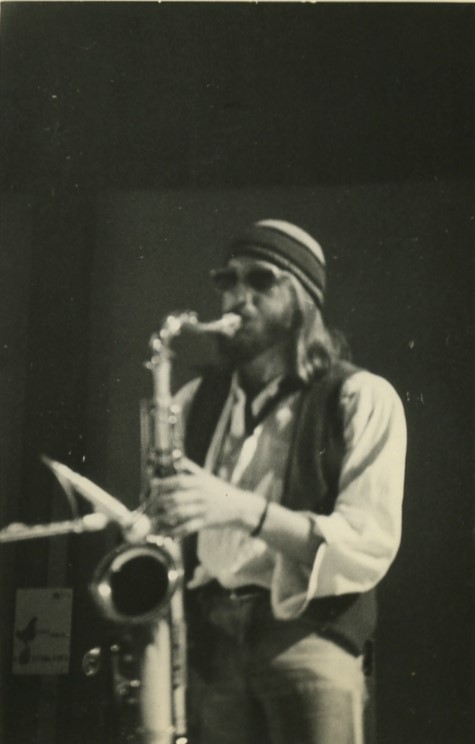
Alain Fabrizio: Costa Blanca was a group of the 70’s with their own music and their own sound that could enter into the so-called fusion phase progressive rock and it was brilliant in concerts and festivals. Composed by Napi Carratala (guitar), Chiqui Navarret (bass guitar), Pedro Barcelo (drums) and Alain Fabrizio (tenor sax, alto, soprano and flute).
When and where did Costa Blanca play their first gig? Do you remember the first song the band played? How was the band accepted by the audience?
Pedro Barceló: Our first gig was in a square in the Barrio Viejo of Alicante. The hippies would gather there and we would listen to the music we liked. Weather Report, Herbie Hancock, Mahavishnu Orchestra, Chick Corea, and all the progressive rock of the time, Lou Reed, David Bowie, et cetera. In the first gig we managed to connect with all that public that knew us and that we shared the same lifestyle (music, drugs, sex…). Our first song that we composed was ‘Tijal’. We somehow became the representative group of the hippie movement in Alicante in those years. Everyone in the neighborhood recognized us and went to our concerts, we had our fans.
Alfonso Napi Carratalá: I don’t know if it was the first but the one I remember the most is ‘Stratus’ by Spectrum (Billy Cobham album). Costa Blanca was accepted from the first note we played on the stage, little underground pubs in that time and some other places like disco bars and so.
Alain Fabrizio: As far as I remember the first concert we did was in a pub in the old town and very underground in Alicante called Puerta de Hierro. According to Napi and he has a good memory, the first song we played in these places was ’Stratus’ by Billy Cobham. It was a great moment for us and the public that went up from the first bars.
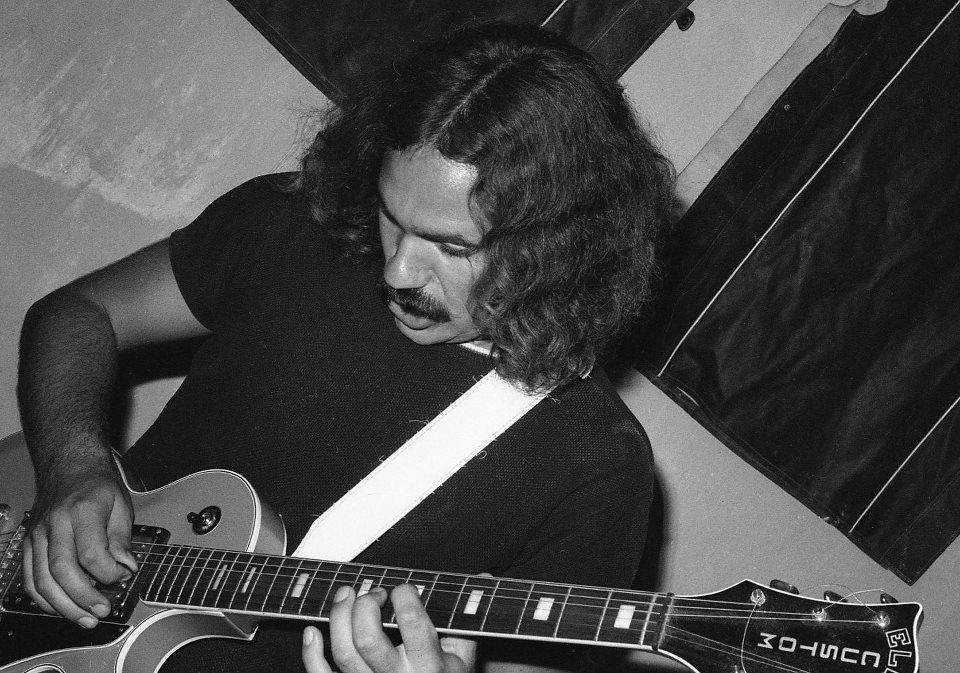
What sort of venues did Costa Blanca play early on? Where were they located?
Pedro Barceló: At first we started playing in a hotel discoteque called Tijal, where we composed that song. Then we played in the Barrio and we had the opportunity to play in the first rock festival in Benidorm. We liked it a lot and we began to be in the programs of many rock festivals that emerged as something new in Spain.
Alfonso Napi Carratalá: Throughout the entire territory of Spain: Malaga, Murcia, Alicante, Valencia, Barcelona, Madrid, Bilbao et cetera and many small town rock festivals that staged portable bullrings. At that time rock in Spain broke borders.
Alain Fabrizio: I remember that at the beginning we did concerts in pubs, open-air concerts for city council events such as in the bullring of Alicante, high schools and festivals.
What’s the story behind your band’s name?
Pedro Barceló: The name arose spontaneously. We wanted to make music that had something of the roots of our city. The entire coast of Alicante is called Costa Blanca. I think it was Napi who suggested it and we all agreed.
Alfonso Napi Carratalá: Chiki the bassist and I were looking for a name and we came up with Costa Blanca (White Shore), but here in Alicante there are many businesses with that tourist and commercial name, real estate, restaurants, dance bands, et cetera. It seemed shocking to us to put a name that had nothing to do with the music we made, but we decided to distinguish it from the rest by writing it all together as if it were a single word. “Whiteshore” but it was very difficult for the printers used to writing it separately to understand that we wanted it in a single word. Anyway, we had a great time.
Alain Fabrizio: I don’t remember anything related to the name, haha.
What influenced the band’s sound?
Pedro Barceló: We all liked progressive rock and also jazz rock and funk. Our favorite groups were Weather Report, Earth, Wind and Fire, Herbie Hankock, Billy Cobham, Jeff Beck… And everything that the DJs of the time played in the bars of the Barrio Viejo.
Alfonso Napi Carratalá: I think it can be said that the Weather Report was a great influence among many others.
Alain Fabrizio: I think all of us liked listening to the Weather Report and were very influenced by the style.
What can you tell us about Aphrodita Discos? How many copies of your album were originally pressed?
Pedro Barceló: Aphrodita Discos was not a record company. They had a company of cassettes and covers to sell at gas stations. They wanted to help us put out that first album but they had no experience with it. I don’t remember how many copies they made. I guess not many. They had no contact in the industry at the time. For them we were an opportunity to invest in a group they liked and sell a few copies in their sales network. That’s why the studio they looked for was a not very professional studio, run by a singer from a group that was somewhat forgotten at the time. The studio suffered from the media and I remember the recorder that did not rewind well and they did it by hand with a screwdriver. Everything we experienced in the studio was a bit disappointing although we tried to make it a good record, and we tried our best.
Alfonso Napi Carratalá: The manager of Aphrodita Records unfortunately passed away many years ago, they were visionaries but the affair did not last long. I think it was 300 copies.
Alain Fabrizio: I don’t remember much about Alfonso Guzman, the manager. I don’t remember dealing with him much in business. I just remember that he really liked our music and our vibe as people and musicians. He was very excited about the LP. If I remember well they printed about 400 copies which by the way flew quickly.
What’s the story behind your debut album? Where did you record it? What kind of equipment did you use and who was the producer? How many hours did you spend in the studio?
Pedro Barceló: It was really very disappointing as we thought it would sound better than live, but it didn’t. The recording studio was quite precarious and the technician was the singer of a very commercial group from the 60s, but as an engineer he was not very good at it. The studio was unfinished and the drum booth unventilated and poorly sounded. The result disappointed us. I don’t remember how many days we stayed, there weren’t many. But I do remember having technical problems because of poor studio equipment. We did not have any recording experience and we did not know how to project the power of the live show.
Alfonso Napi Carratalá: Those were very psychedelic times, we were very young and we didn’t know anything about the music industry. I am sure that each of my colleagues will have an absolutely different perception. My experience was the following: In the middle of a tour, Aphrodita Alfonso Guzman’s Chief Procuctor, who was an excellent but excessively fast driver, tells us, “Guys, we’re going to record in Madrid!”. Without giving it much importance we said, “Okay!”. I took my guitar and got into a car with my colleagues. We arrived in Madrid as fast as we could, it seems that Alfonso had rented the studio for a few hours that same night and we were short of time. The recording was like a couple of live sessions with some recording, we hadn’t done pre-production or anything like that. Pure anarchism. The studio was in poor condition, the tape recorder didn’t work well and they rewound it by hand, I thought that was normal. When we finished the recording that same night we returned to Alicante as fast as we had gone (as in a dream). The next day with the sun out, I wondered. What happened? I think I remember that we used the studio amps, a Fender for my Gibson and a Marshall for Chiki’s Fender Jazz Bass. Alain took his Selmer saxes.
Alain Fabrizio: The memory I have of the recording was the terrible sound of the studio. You had to play and not make mistakes. The mixes had to be done in a hurry because the studio was rented for one night only. We were very tired and inexperienced.
Please share your recollections of the sessions. What were the influences and inspirations for the songs recorded?
Pedro Barceló: Our expectations were that the band sounded like we sounded live. As the recording progressed we felt that we couldn’t do it and that gradually defeated us. However we tried hard to make it at least a reflection of the spirit of the band.
Alfonso Napi Carratalá: The memory I have of the rehearsals was pure feeling, we were not aware of any influence on the musical composition. I remember trying hard not to look like anyone.
Alain Fabrizio: What we recorded was exactly what we were and what we played, mainly our own songs with our own sound. In this LP the music was our music, our style. What we knew how to do at that time without any other pretension. Costa Blanca Group [laugs].
The album has a truly remarkable atmosphere. You can just feel the Mediterranean sunset feeling stoned.
Alfonso Napi Carratalá: It is a very correct comment because we had a house in front of the beach where we all lived together. Swimming at the beach was the break between rehearsal sessions.
Alain Fabrizio: The truth is that the general atmosphere of our music is quite similar to the variants of the climate of our area; calm, peaceful, summerish and on the contrary the strong easterly winds that shake our coasts.
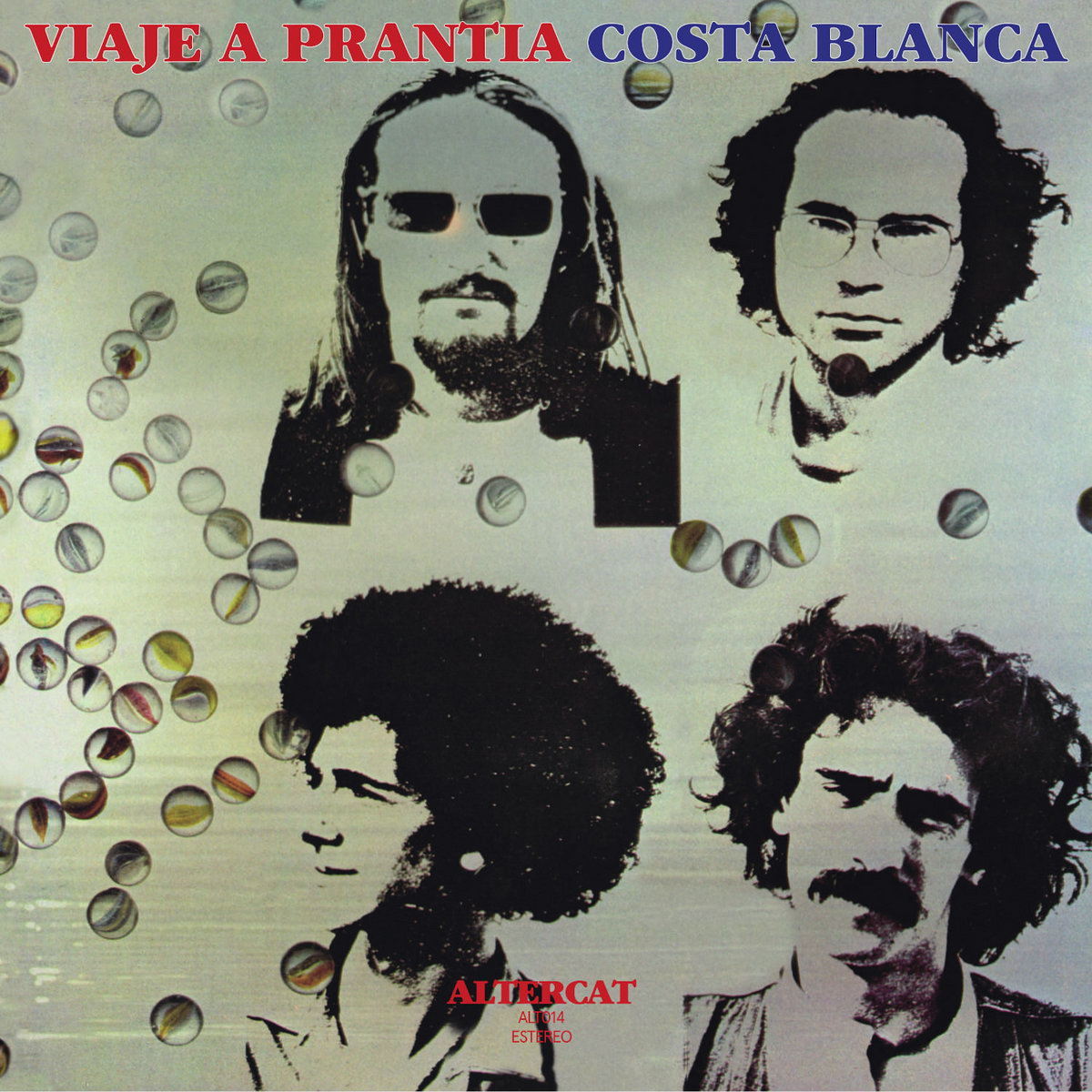
Altercat Records did a wonderful reissue of your debut album, ‘Viaje a Prantia’. Are you excited to hear your music again on a new vinyl.
Pedro Barceló: It will be interesting to hear it again and see some photos that I haven’t seen since. Sure, a lot of emotions will be stirred.
Alfonso Napi Carratalá: It is one of the best gifts you could give me.
Alain Fabrizio: When I heard that the LP ’Viaje a Prantia’ was going to be re-released, it really touched my heart to know that our music was still beating.
How pleased was the band with the sound of the album? What, if anything, would you like to have been different from the finished product?
Pedro Barceló: Well I think that over time listening to that recording transports you to a very special time in Spain where times of political and social change were breathed. The music did its part. And we contribute with our grain of sand. Our music was based on the feeling of freedom, of creating without limitations, of giving your music honestly, for the pleasure of communicating. We never made money in Costa Blanca, but we felt unity and freedom. That is the memory I have. Something true and honest. We were disappointed with the result and wanted to record it again. But we still defended it and presented it even though we had more punch live.
Alfonso Napi Carratalá: I personally believe that Altercat Records has done a marvelous job because it has absolutely respected everything that meant a vital attitude of innocent and unconscious rebellion against the life and art of that time. I thank Jordi Roig a thousand times for that.
Alain Fabrizio: Personally I would have liked to remaster the album which at the time was recorded in a rudimentary way, but it is what it is. This new album keeps all the warmth and atmosphere of the 78s.
What happened after the band stopped? Were you still in touch with other members? Is any member still involved with the music?
Pedro Barceló: Years later I went to Madrid and worked as a session musician. I have recorded and toured with many artists. But I never felt the fraternity and freedom that we had in Costa Blanca again. Of course, whenever I went to Alicante I met my friends, especially Chiki, who I kept seeing until he left us.
Alfonso Napi Carratalá: When the group ended I was working as a musician in Madrid for 15 years and then I returned to Alicante where I continued with music and theater in different projects including video and multimedia technology. Pedro continues to work in Madrid as a musician as well. Chiki unfortunately passed away. Alain is not professionally dedicated to music. From time to time we meet and chat.
Alain Fabrizio: After the band ceased to exist I went back to Marseille. I got married, I had to take care of my family materially doing everything but music. Five years later I returned to Alicante to take care of the family business - ”Pizzeria Provencal “in Urbanova until this year 2022 to retire.
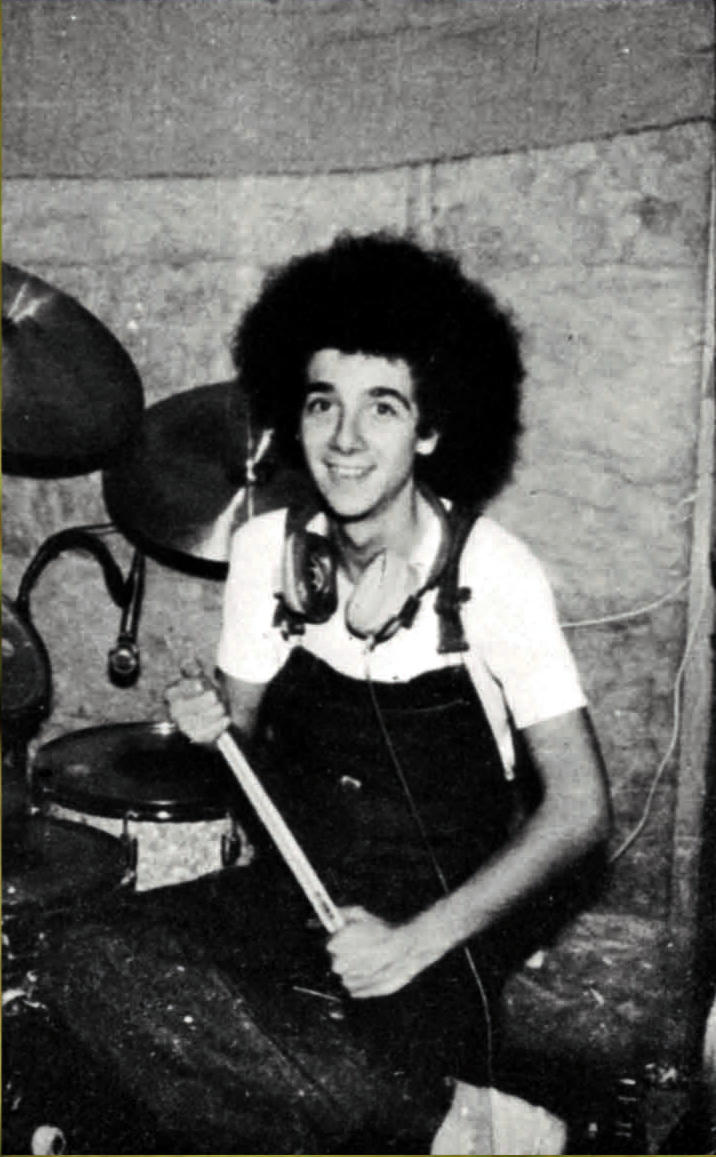
Looking back, what was the highlight of your time in the band? Which songs are you most proud of? Where and when was your most memorable gig?
Pedro Barceló: In the end you take the emotion with you. Costa Blanca was above all a group of friends. What distinguished us from others was not only the music, it was the energy of our friendship. Perhaps it is not reflected in that recording, but our power was our unity. Because we were a group of dreamers who believed in ourselves and in giving our love to music.
Alfonso Napi Carratalá: The short time it lasted was magnificent. All the songs had their point but especially: ‘Tijal’ and ‘Viaje A Prantia’. I remember four memorable performances:
Rock Festival in the Benidorm Bullring
MM (Madrid Concert Hall)
San Juan Evangelista (Colegio Mayor)
Rock Festival in Celeste-(Barcelona)
And many more…
Alain Fabrizio: The illusion with which we made music at that time was the most beautiful thing. The songs with which I feel reflected are ’Caminito que no mola’ and ’Viaje a Prantia’ both mark very significant moments in the history of the group, I remember especially: Festival at the Plaza de Toros de Alicante Festival in the bullring of Benidorm Rock and Rios concert in Alicante (opening for Miguel Rios). And many more.
Is there any unreleased material by Costa Blanca?
Pedro Barceló: We re-recorded ‘Viaje a Prantia’ a while later. But the band was no longer the same. That recording was better but we had changed.
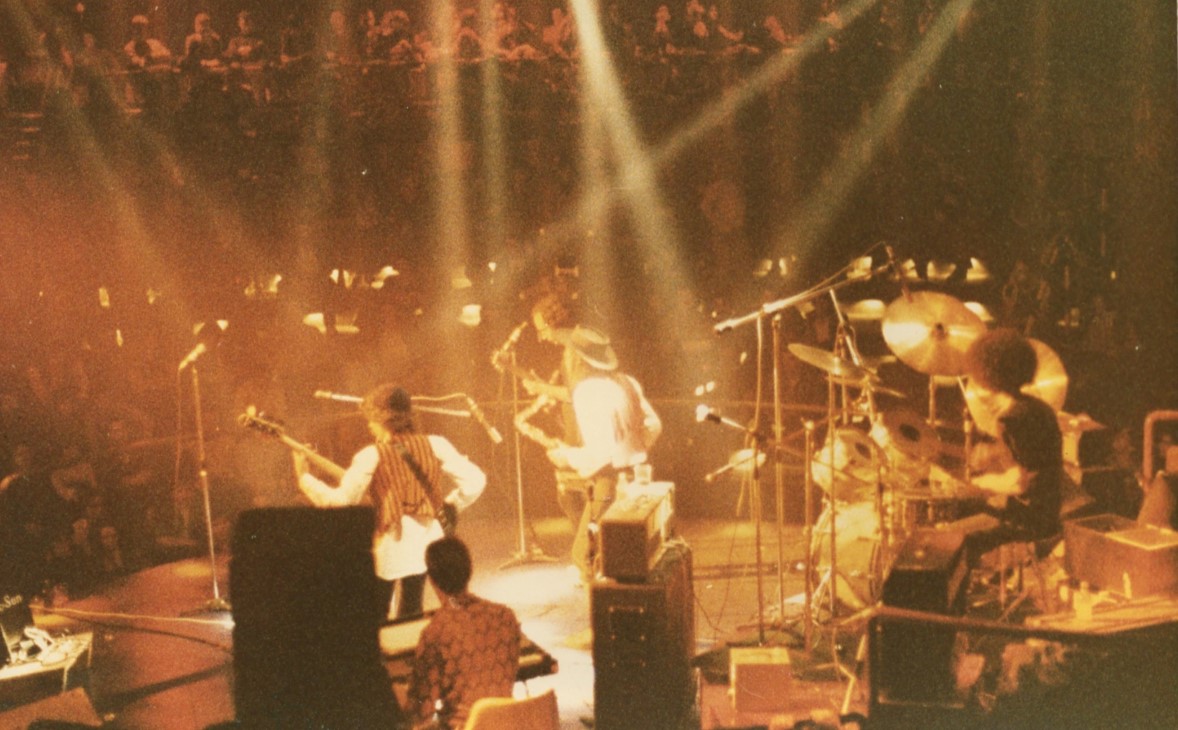
Thank you for taking your time. Last word is yours.
Pedro Barceló: Thank you very much.
Alfonso Napi Carratalá: Thank you.
Alain Fabrizio: Thank you!
Klemen Breznikar
Headline photo: Napi Carratalá and Alain Fabrizio
Altercat Records Official Website / Facebook / Instagram / Twitter / Bandcamp / YouTube

